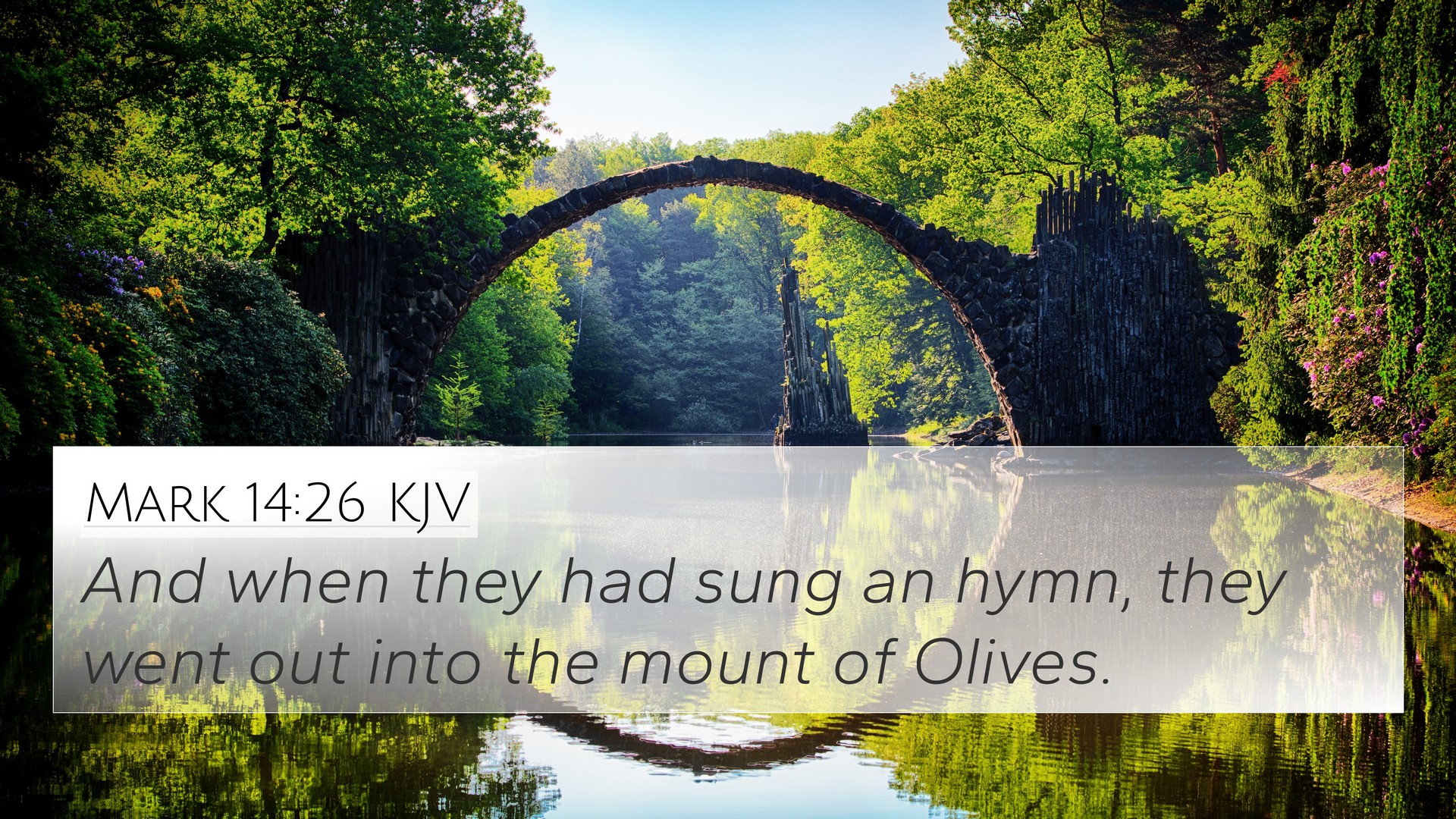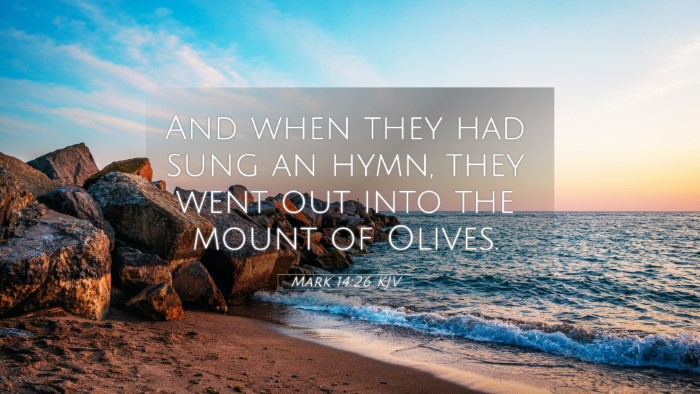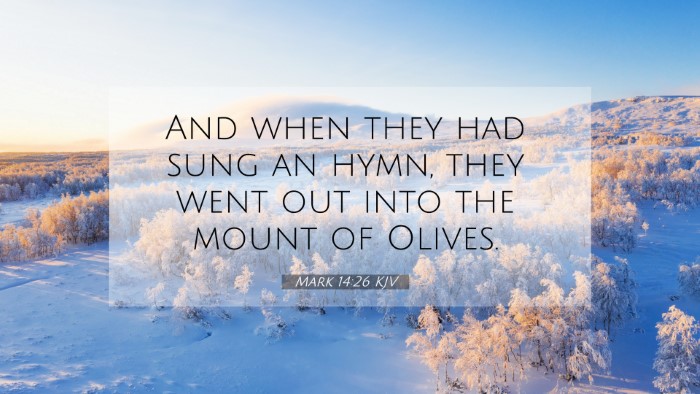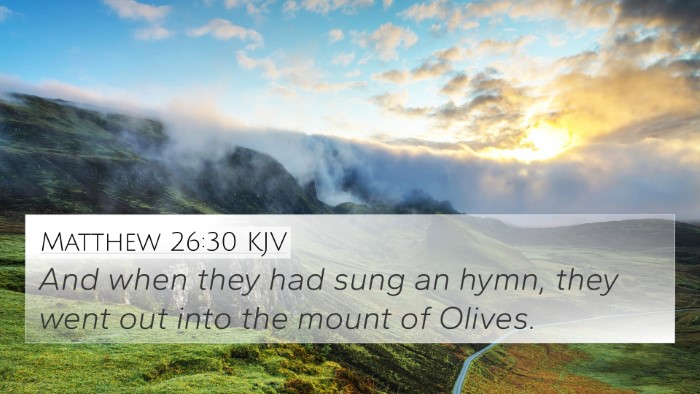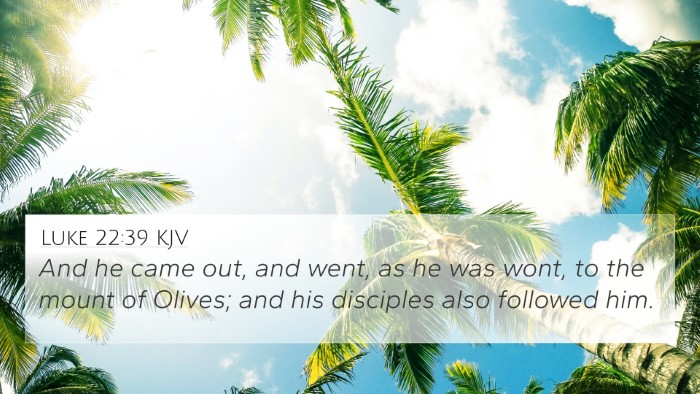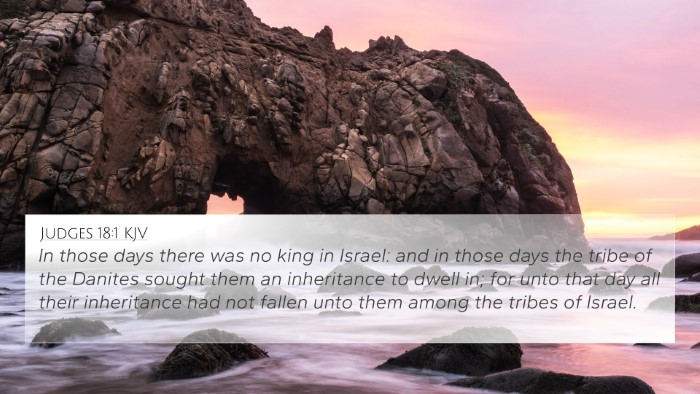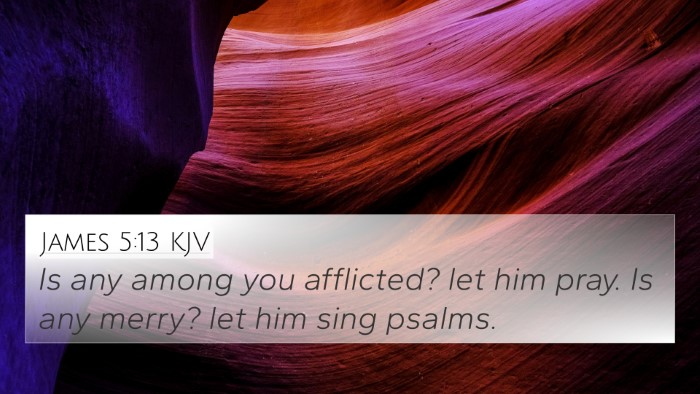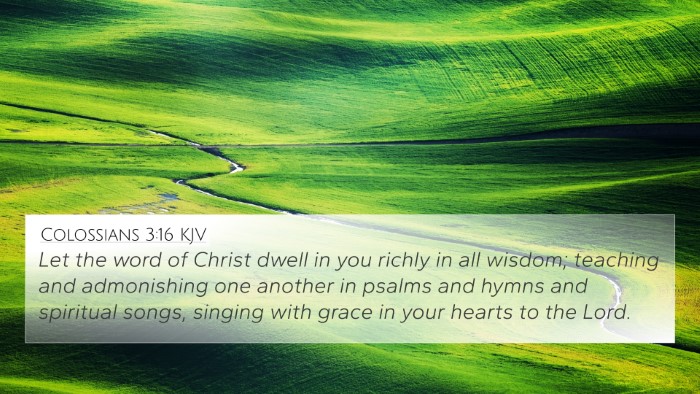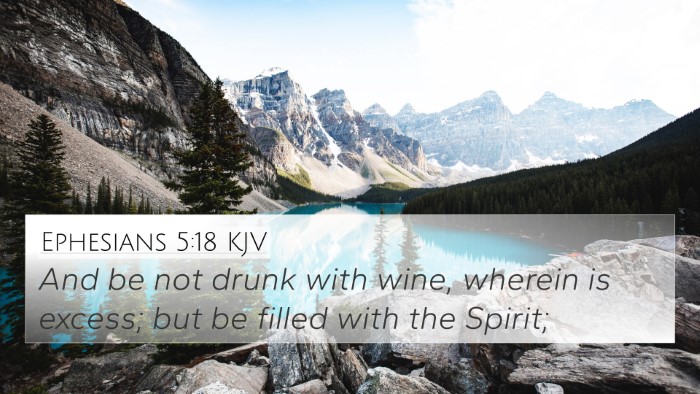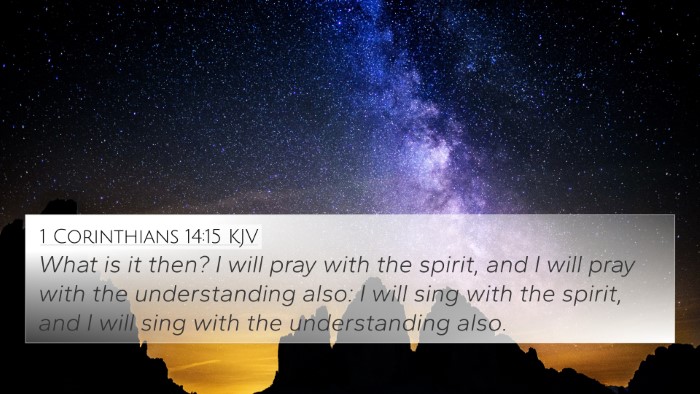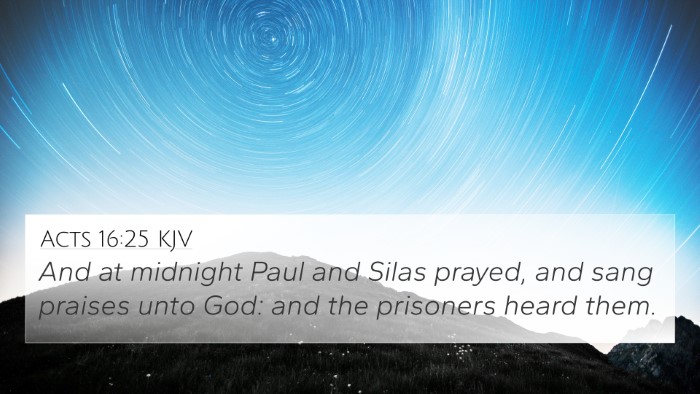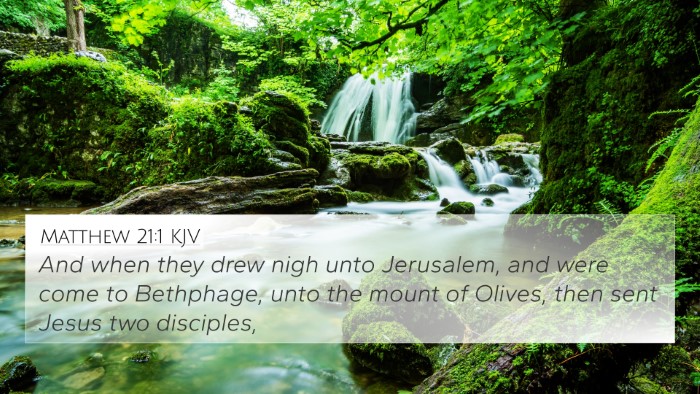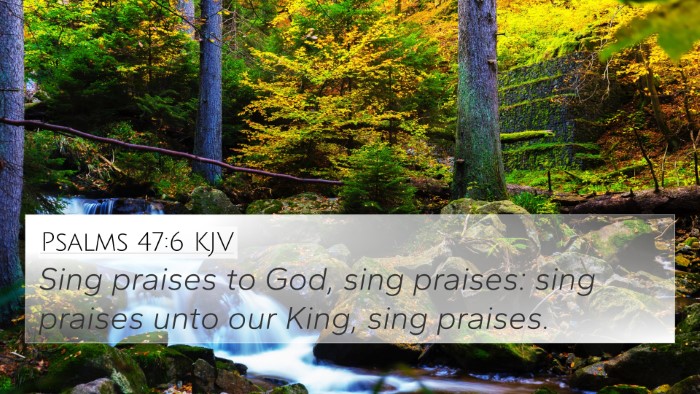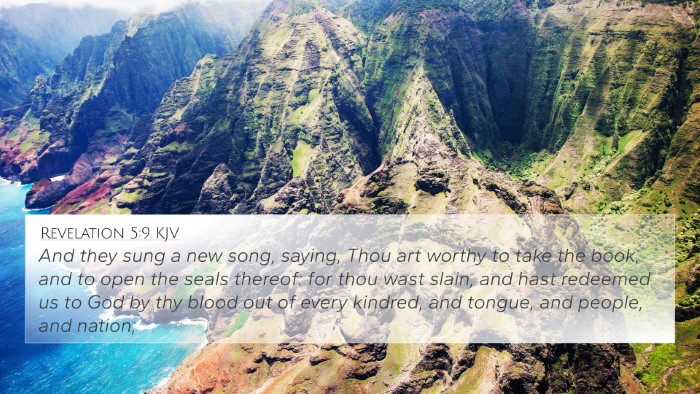Mark 14:26 - Summary and Meaning
Mark 14:26 states, "And when they had sung a hymn, they went out to the Mount of Olives." This verse captures a moment during the Last Supper where Jesus and His disciples engaged in worship before facing the impending events of His crucifixion. The act of singing signifies unity, obedience, and an expression of faith in God, setting a tone of reverence and comfort despite the turmoil that lay ahead.
Contextual Significance
This verse follows the institution of the Lord's Supper and exemplifies the deep connection between worship and fellowship. This moment conveys the disciples' adherence to Jewish tradition, highlighting the importance of music in worship, particularly in times of sorrow and reflection.
Thematic Analysis
Thematically, this verse can be analyzed through various lenses:
- Worship: The practice of singing hymns can be seen as an act of devotion, reflecting the early church's continuity of worship and the joy found in expressing faith through music.
- Community: Jesus' relationship with His disciples is reinforced through shared practices, and this moment highlights the importance of coming together in faith, especially during trials.
- Preparation for Suffering: The singing occurs just before Jesus would undergo immense suffering, illustrating the strength drawn from worship in the face of adversity.
Commentary Insights
Several public domain commentaries provide valuable insights into this verse:
- Matthew Henry: Henry notes that this act of singing a hymn was a significant part of Jewish Passover tradition, reminding the disciples of God’s deliverance. It prepares them psychologically for the challenges ahead.
- Albert Barnes: Barnes emphasizes the importance of hymns in early Christian worship and suggests that singing helped to solidify their faith and commitment in the face of impending trials.
- Adam Clarke: Clarke draws a parallel with other scriptural moments of worship, advocating that such acts provide spiritual sustenance and encourage perseverance amidst darkness.
Cross-References
Mark 14:26 connects with numerous other verses, which collaboratively deepen our understanding of worship, community, and faith. Here are 10 related cross-references:
- Psalm 118:1-29: A psalm of thanks that reflects celebration and praise, fitting as a hymn of worship.
- Matthew 26:30: A parallel account of Jesus singing a hymn before going to Gethsemane.
- Luke 22:39: Connects the singing of a hymn with the subsequent events of Jesus’ prayer in the Mount of Olives.
- Hebrews 2:12: Quotes from Psalm 22, emphasizing the role of singing praises to God.
- Acts 16:25: Illustrates the power of singing in prayer and worship even in prison, relating closely with the theme of perseverance.
- Colossians 3:16: Encouragement to let the word of Christ dwell richly in them, singing with gratitude and devotion.
- Ephesians 5:19: Talks about speaking to one another with psalms, hymns, and songs from the Spirit, similar to the practice of singing during the Last Supper.
- 1 Peter 2:9: Highlights the chosen people’s response to God's grace, which includes proclaiming His praises.
- James 5:13: Encourages those who are in trouble to pray and those who are happy to sing songs of praise.
- Revelation 5:9: Depicts a scene in heaven where praise is sung to Christ, illustrating the eternal nature of worship.
How to Use Cross-References
Utilizing cross-references is essential for deeper Bible study. Here are some tools and methods to facilitate this:
- Bible Concordance: A useful resource to identify key themes and verses related to specific subjects.
- Bible Cross-Reference Guide: These guides often list related verses, making it easier to find thematic connections.
- Cross-Referencing Bible Study Methods: Engage in thematic studies where multiple verses addressing a single theme are examined together.
- Comprehensive Bible Cross-Reference Materials: Look for resources that compile cross-references within the text of the Bible for easy access.
Conclusion
Mark 14:26 serves as a poignant reminder of the power of worship even in the face of trials. Understanding this verse within the context of communal worship and the tradition of singing enhances our appreciation for its place in the Gospel narrative. The multitude of cross-references further enrich this study, highlighting the interconnectedness of Scripture and the importance of worship in the Christian faith.
